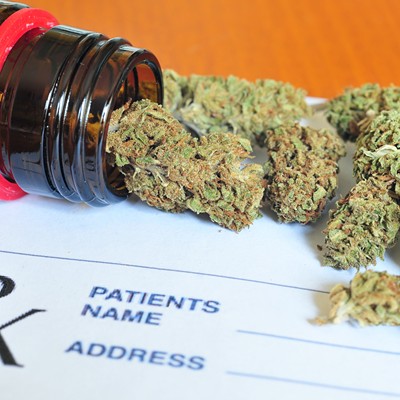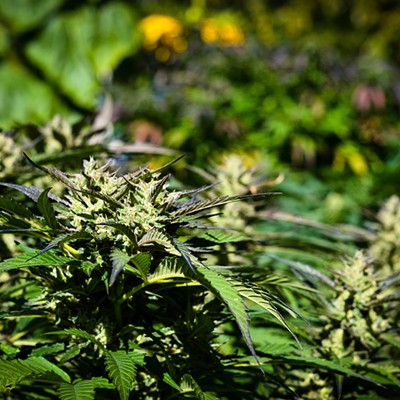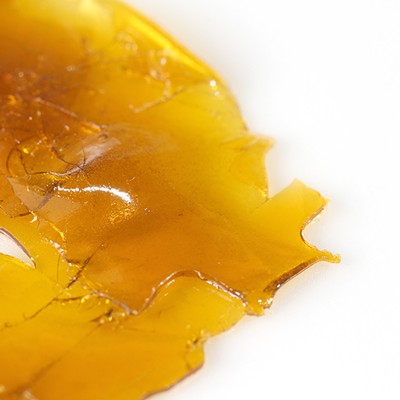More and more, readers are beginning to understand this, which is why Internet news is rapidly taking over. Online, you can follow stories that interest you hour to hour, and you can go deeper with just a click. It's easy to find out what's happening on the other side of the world, but your own backyard is another matter, especially when your local media outlets are as eagerly self-censoring as they are here.
There is no obsessed, manic-depressive reporter covering the Kinder Morgan follies, so we will never, ever know who, exactly, the pipeline giant paid off. Instead, we get some TV talking head with his sleeves rolled up looking into how poor little Mexican kids sneaking into elementary schools in Nogales, Ariz., are ripping YOU off (something, incidentally, that had garnered attention in the Weekly a couple weeks before). Hot. Breaking. Fearless.
Mainstream media love the ease and convenience of fake news. Fake news consists of canned updates on subjects that we've all accepted as newsworthy for so long that we don't even think about why they're newsworthy. A long-running favorite in this class is Drug Peril in America--a theme that goes back at least to 1914 and this New York Times headline: "Negro Cocaine Fiends."
Never mind that the real story about drugs these days is criminal price-gouging by the pharmaceutical industry, ever-more obvious government complicity in said gouging, and the increasingly uncomfortable position of our beloved elected officials. Few public comedies are as entertaining as hundreds of pols pinned between raging constituents and the shadowy suits to whom they owe so very much.
While the ever-so-startling obesity news (who knew people were getting fatter?!) has lately threatened to supplant it, drug-fiend news is still No. 1 among mediocre rags everywhere for both its air of urgency and its ever-flowing font of press releases about scientific studies. (Almost always with nice-looking graphics, too!) A classic example appeared two weeks ago when papers across the country ominously announced that abuse of and dependence on marijuana among adults surged (marijuana use is uniquely prone to "surging," "skyrocketing" and "soaring") between 1991 and 2001. Among African Americans in the 18- to 29-year-old age group, "abuse and dependence" leaped 220 percent in those years, while among Hispanic Americans in the same age group, it increased by a frightening 150 percent. (Overall use, by the way, stayed about the same during this period--about four percent of the adult population smokes dope.) Even more appalling, the number of users between the ages of 45 and 64 who were abusive or dependent exploded by 335 percent, to a staggering .4 percent of people in that age group. Think of the implications.
Where to begin dismantling a non-story like this? For starters, take the definitions. One criterion the researchers used to define abuse was "drug-related legal problems"--in other words, if you get busted, you're considered an abuser, even if you got snatched up on your first toke. And the definition of a dependent user was one who "experienced increasing tolerance to the drug or used it compulsively and continued to do so despite drug-related psychological or physical problems." (Which would be ... ?) Notice how far this is from addiction, for the good reason that marijuana is very mildly addictive. In fact, two independent scientific assessments of the addictive potential of common drugs found that it has roughly the same propensity to enslave body and mind as caffeine. Ooooooo.
And, just because I like beating dead horses, here's a comparison of fatalities attributed per year to America's favorite drugs, as compiled by the National Institute on Drug Abuse itself:
·Tobacco--390,000
·Alcohol--80,000
·Second-hand Tobacco Smoke--50,000
·Cocaine--2,200
·Heroin--2,000
·Aspirin--2,000
·Marijuana--0
That's right, zero. So why does marijuana use qualify as a perpetually hot topic? Because it's a national boogey-man? Because the media are so deeply lazy? Because the government spent $19 billion last year on its utterly useless War on Drugs? Because someone, somewhere, wants to distract us from real stuff--such as the price of blood pressure and arthritis meds?
I don't know. What I do know is that just because some reporters and editors don't think, it doesn't mean you can't.






